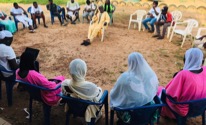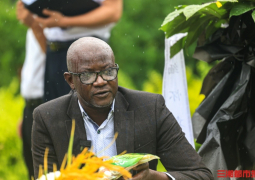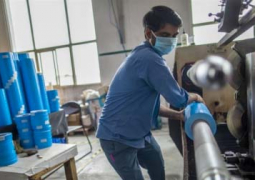
Some two decades and half ago, storytelling was a significant activity in Gambian communities. The stories are commonly fictitious but they can help children and youth to draw lessons of moral consciousness from them that can stimulate their maturity and build cautiousness.
But in today generation, most parents are turning to the convenience provided by technology to send their children to sleep. That may be considered a simple pleasure of childhood but nothing of it can be compared to the relevance of storytelling to children. Today, parents have little or no time to spend on telling stories with their children.
However, a rural youth organisation call The Rural Child is now trying to revive this vibrant culture of Storytelling in rural communities. This is in consideration of the critical part it used to play in the overall development and transition of children from childhood to adolescence and to adulthood. Whether it is a tale about heeding to elderly advice; about the wise rabbit and the greedy hyena; Sona Mariama, the girl who refused to heed to her parents’ advice or the animal kingdom, storytelling offers several advantages to children.
The revival process name -Moonlight Storytelling- is a brainchild of the International Organisation for Migration (IOM) Migration Information Center-MIC in West Coast Region, the Moonlight Storytelling targets to strengthen connection between the MIC Office and communities on irregular migration and its related issues and help young people to draw moral lessons from the stories narrated by migrant returnees that can remind them about the dangers associated with irregular migration.
It also targets to promote excellence in informal education and support young people with learning aids for growth and development to redirect a positive mindset. Storytelling used to be a popular bustle in homes and communities. It is usually organised in circular arrangements and elders would narrate stories that are intended to help children to be cautious when they grow.
Since the conceptualization of the Moonlight Storytelling by the MIC, The Rural Child built strong interest for its sustainability and to reach out to more communities in their effort to revive this important culture. Together with the MIC officer, they have now conducted the activity in four communities in Kombo East District and anticipating to conduct more in other rural communities.
The Rural Child is a charitable organisation registered under the Companies Act 2013 of The Gambia. It is located in Mandinaba, led by youth activists, human rights defenders, teachers, journalists, health practitioners and children. It exists to monitor the welfare and protection of children, particularly those in rural Gambia and to empower youth, women and communities to build peace, reconciliation and the realization of untapped opportunities and talents within their surroundings that they can utilise to develop themselves, their families and communities. The organisation also targets to close the access to opportunity gap between rural and urban children, youth and women. It provides access to free extra teaching and learning opportunities and mentorship on career identification to students.
Through its community library activities [from where the organization emanated], The Rural Child provide career guidance and counseling to children and youth and expose them to the understanding of fundamental human rights, personal health, education and the environment they live.
“We are doing this because from our childhood experience, we have realized that children love listening to stories that offer them moral lessons,” Binta ML Touray, the International Organisation for Migration officer for West Coast Region who conceived the idea of the Moonlight Storytelling said.
Ms. Touray believes that when parents and communities invest adequate time in narrating and sharing stories with children, they are instilling virtues in them that they can carry with them as they grow old.
Narrating stories of moral values and meaningful messages to children can help them to emulate good manners and under the order of things. Doing this inculcates cherished lessons in children and helps them learn about kindness, wisdom, honesty, compassion and more.
Coordinator of The Rural Child Amadou Jallow said from their findings, storytelling is one of the fantastic ways to hold a child’s attention for long and a lot of children in this generation find it hard to concentrate on something for an extended period of time.
Storytelling can help improve the listening skills of children. This is because they will become more concentrated and learn how to increase their focus on a certain topic.
Mr. Jallow said when children listen to a story; it encourages their imagination. They can imagine the story however they want it to look like in their heads. It can even enhance their creativeness and make them open to new ideas.
He said one of the most important values that they identified from storytelling is its potential to open the eyes of children to new things – places, culture and traditions. It allows them imagine being in the place of the story’s characters which develop their understanding as they try to follow their actions.
Narrating stories to children can increase their ability to express themselves and this was why The Rural Child initiated mentorship sessions for them where they are exposed to both narration of fictitious stories with moral lessons and live-stories from people about their life experiences. These are intended to help the children grow into adulthood ready and wise.
Story telling encourages children to communicate their thoughts, feelings and ideas and encourage them to ask questions or discuss their thoughts.
The previous Moonlight Storytelling with MIC were held twice in Mandinaba, one in Tubakuta and one in Kuloro where an elderly griot led the narration while migrant returnees share their experiences with the participants. They were followed by campfires, characterizing how storytelling is conducted in communities.
Read Other Articles In Feature





